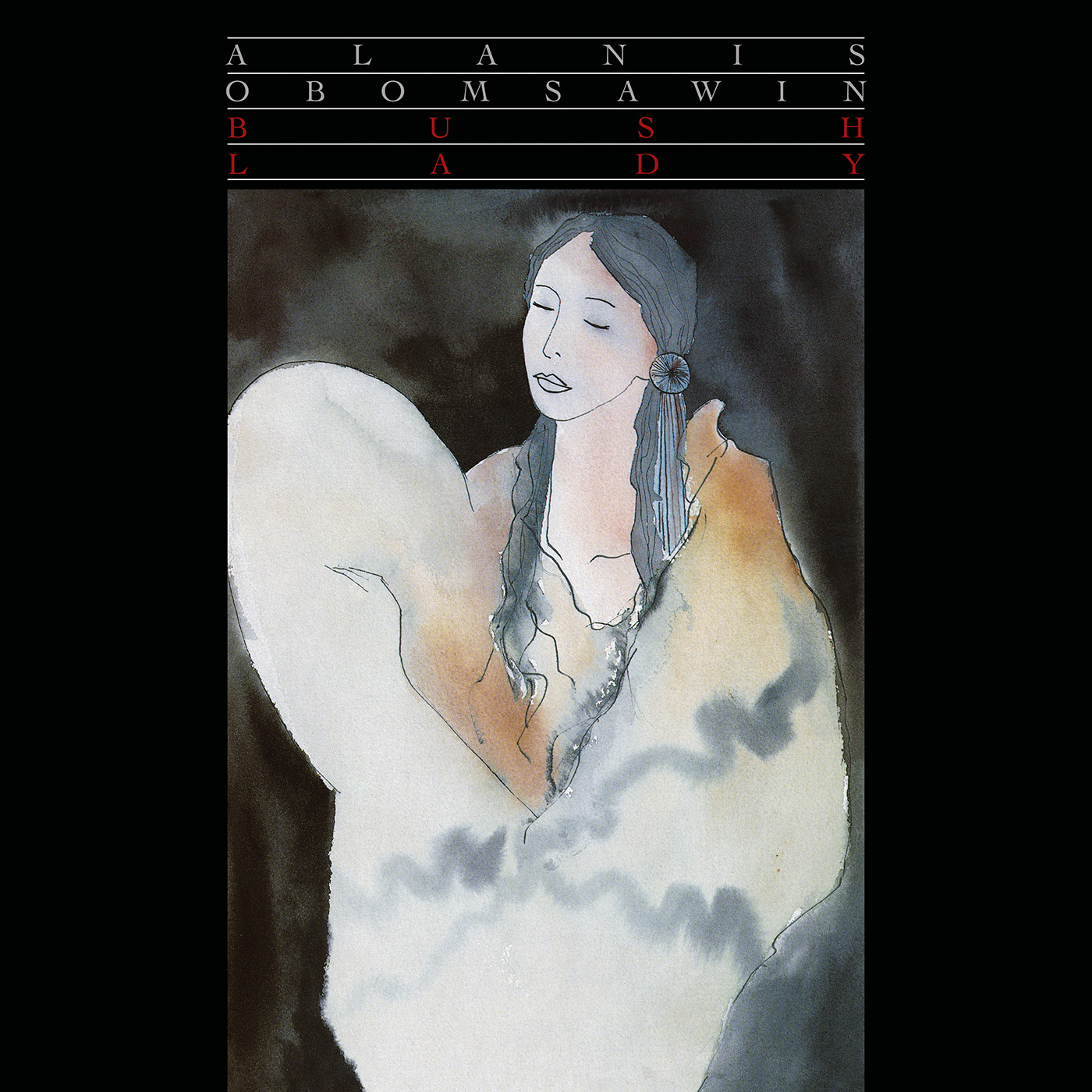Alanis Obomsawin, from the Abenaki Nation, is best known as a storied filmmaker whose documentaries serve to shed light on struggles for Indigenous rights. Beginning as an artist in the ‘60s, she finally recorded her lone full-length album after 20+ years of live performances and social activism. Bush Lady, originally released in 1985 as a CBC recording and later remastered by Obomaswin in 1988, came at a time when assimilation was just being phased out of official government legislation and the violent history of Indigenous peoples experiences as a result of colonization was not a prevalent topic of national discussion. Bush Lady gets its third reissue at a pivotal moment in Canadian and Indigenous history as the Truth and Reconciliation Commission attempts to educate and acknowledge the oppression of the past. The record is a sonic testament to Obomsawin’s unrelenting fight for Indigenous peoples located within the borders of Canada. The dialogue on the record is a powerful reminder about the impact colonization has on Indigenous women and culture.
The two-part title track is the story of a woman cast out by the settlers and her own community after the birth of her blond child to a white man. The prose is spoken from the perspective of a number of different narrators including the colonial invaders who treat the woman like an object in passing, casting her out after her pregnancy is revealed: “Go back home to your people / Go home now, you hear?” The dialogue is broken only by Obomsawin’s chants. In the second part the titular Bush Lady, who has had to abandoned her child to the settlers, is rescued by her Nokum, her grandmother in spirit form, who beckons her to follow to a place of no pain, away from the earthly existence of homelessness and despair.
While “Bush Lady” is the story of an individual’s pain and demise, “Theo,” also split in two parts and beautifully sung in French, tells the story of a village pushed towards assimilation. Obamsowin’s chants become noticeably angry as the Christian names are forced upon the villagers towards the end of the second part of the song.
Set amidst a beautiful musical score composed of a traditional, animal skin drum and classical woodwind and string instruments, Bush Lady provides a stunning narrative on the experience of Indigenous people living under a colonial state.


